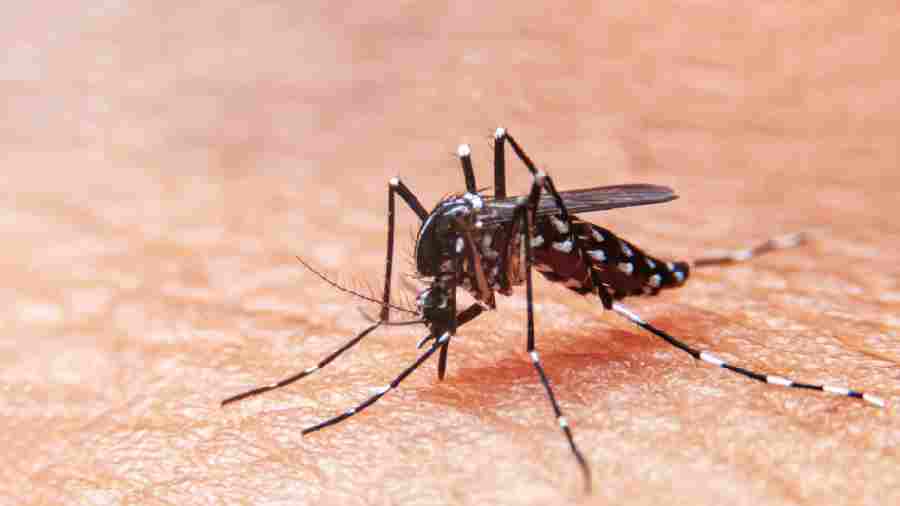Dengue infections are likely to continue till November, the state health department told private hospitals on Saturday and asked them to ensure unnecessary admissions were averted and that no patient in need fails to get a bed.
Health officials told the hospitals to strictly follow the treatment protocol prepared by the National Vector Borne Disease Control Programme, which clearly mentions cases that would require admission.
The private hospitals and laboratories that attended Saturday’s video conference were also asked to keep the prices of dengue tests affordable so that people do not skip the tests.
“We have told them that dengue cases were likely to continue till October and November and they have to remain cautious,” a senior official of the state health department told The Telegraph after the video conference.
“The intermittent rains create the perfect conditions for mosquitoes to breed. So dengue infections are not going subside soon,” said another official of the health department.
Dengue infections have witnessed a sharp rise in the last fortnight. The numbers started to rise in early August and the upward curve became more prominent in early September.
Kolkata’s deputy mayor Atin Ghosh, who also heads the Kolkata Municipal Corporation’s health department, said on September 2 that 564 dengue cases had been reported in Kolkata. On Thursday, Ghosh said the numbers were still less than 900.
About 250 dengue cases had been reported in Kolkata between January and the first week of August, KMC officials said. Six persons are known to have died of dengue in the city since August. Five of the deaths happened in September.
The number of people who died of dengue in the state is unknown as the health department has not released any numbers.
Officials of the KMC, which carries out the vector-control work in Kolkata, said that unless both temperature and humidity drop by a large margin than what they are now, dengue infections can keep happening.
The Aedes aegypti mosquito, the primary transmitter of the dengue virus, breeds in hot and humid conditions. Intermittent rains help create pockets of water that can turn into mosquito breeding grounds.
A senior official of a private hospital said that health department officials also stressed on following the treatment protocol during Saturday’s video conference. They stressed following the protocol for patients already admitted to wards and also for those who just reached the emergency of a hospital.
“The treatment protocol explains when a patient should be admitted. If that is followed, unnecessary admissions can be averted. This will keep beds free for more serious patients. We were asked to see that no deserving patients go back from hospitals,” said the official of the private hospital.
Another point discussed was updating the records in an online system of the health department. All laboratories and hospitals were asked to provide records about patients who test positive for dengue by entering the online system. This information will then reach the civic bodies who can then begin vector-control work in the area.
“Someone testing positive from an area or a number of people testing positive from the same area may indicate that there are mosquito breeding spots in the neighbourhood. The civic bodies then can deploy people to spot and destroy the mosquito breeding grounds,” said a health department official.
